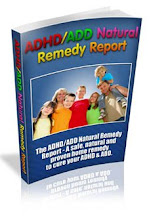Self-esteem is about self-value. It's not about being
bigheaded or bragging. It is about how we see ourselves, our
personal achievements and our sense of worth.
Self-esteem is important because it helps children feel
proud of who they are and what they do. It gives them the
power to believe in their abilities and the courage to try new
things. It helps them develop respect for themselves, which in
turn leads to being respected by other people.
Your child's self-esteem is shaped by:
2 What he/she expects of herself
3 How other people (family, friends, teachers) think and feel
about him/her
Many children with ADHD have problems in school and
with teachers and sometimes have difficulties at home. They
find it difficult to make and keep friends.
People often don't understand their behavior and judge
them because of it. They disrupt situations, often gaining
punishments, so they may find it easier not to bother trying to
fit in or do work at school.
All this means children witwith ADHD often feel badly about
themselves. They might think they're stupid, naughty, bad or a
failure. Not surprisingly, their self-esteem takes a battering and
they find it hard to think anything positive or good about
themselves.
Hyperactive, disruptive behavior is a key factor of ADHD.
Children with ADHD can't help behaving this way, but teachers
trying to cope with a disruptive child may deal with it by
excluding her from the classroom.
Birthday parties and social events are a natural part of
growing up, but other parents may not want to invite a child
who is known to have bad behavior.
child with ADHD being excluded. Exclusion only adds to your
child's negative feelings and reinforces the idea that she's
naughty.









